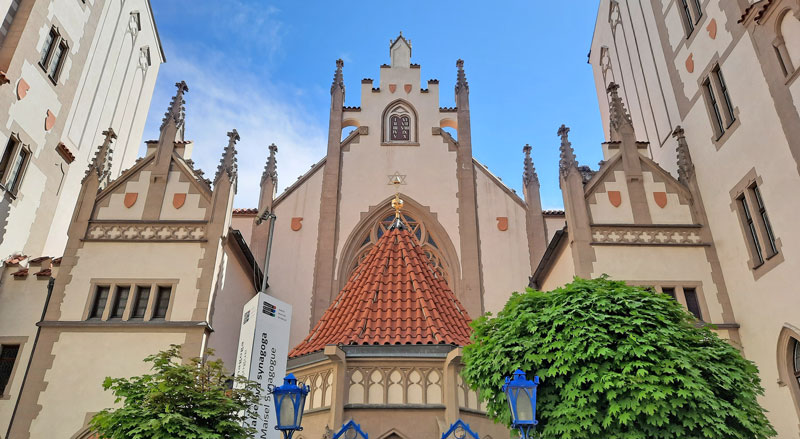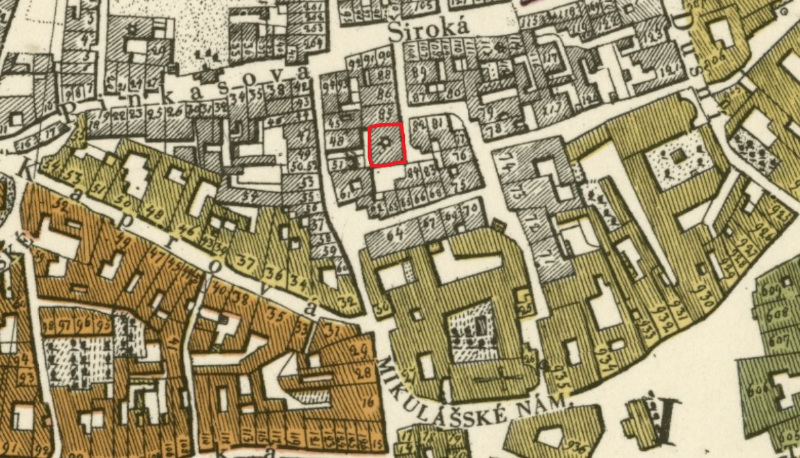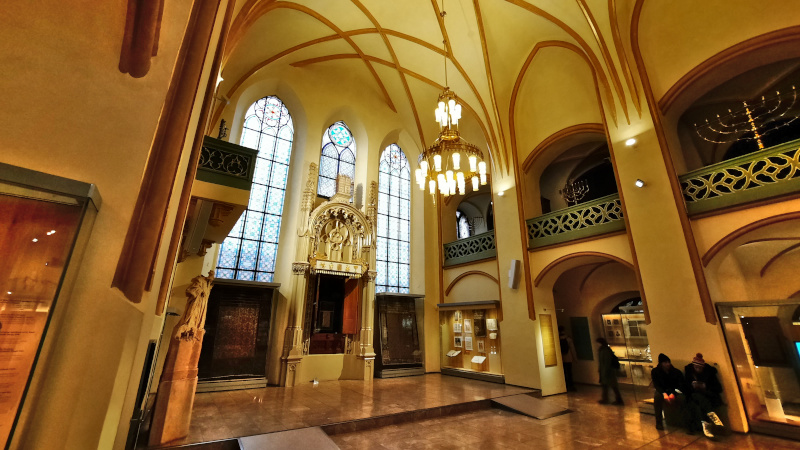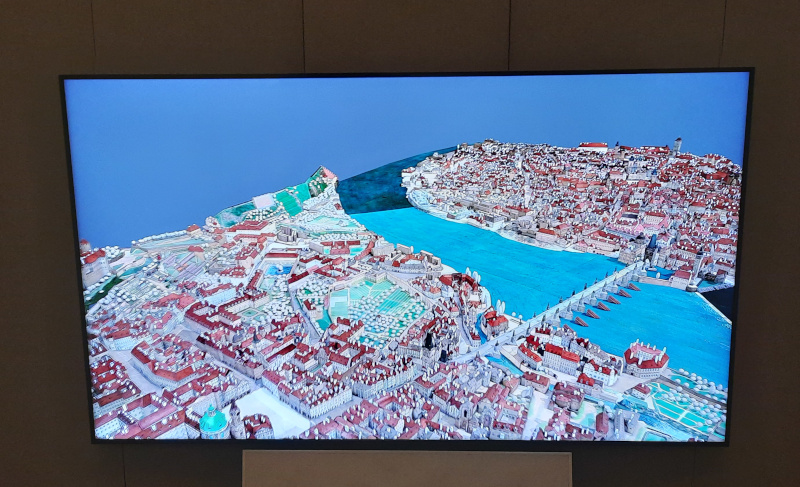Jewish Prague – Maisel Synagogue
The history of Maisel Synagogue breaks down into 3 periods. 1) Initial 1590 construction in late-Rennaissance style, 2) The 1690s Baroque reconstruction, 3) The 1890s neo-Gothic reconstruction. Maisel Synagogue is probably 4th amongst the synagogues in popularity in the Josefov District but I’ve always had one big reason to visit which I’ll explain as we go.

Maisel Synagogue – The First Version – The 1592 Construction
By the end of the 16th Century a man called Mordechai Maisel had risen in wealth and power to become Primate in the Jewish Ghetto (kind of mayor although the ghetto was not a town at this point in time). He had been fortunate to be a rising star in the Jewish Council just as Holy Roman Emperor Rudolph II was taking power (1576-1612). Mordechai Maisel was a man of enormous influence who could arrange private financing for the Emperor (50 years later a person like this would be referred to as a “Court Jew”) so the two became acquainted and by 1590 Maisel had acquired privileges to build a late-Renaissance style synagogue which he opened in 1592.
Maisel Synagogue – The Second Version – The 1690s Reconstruction

In 1689 we had a great fire (rumoured to have been started by a French arsonist) which affected the Old Town and completely destroyed the ghetto which required the Maisel Synagogue to be rebuilt. As a result it acquired a more Baroque appearance and the length of the synagogue was reduced by 30%. Again the synagogue was badly damaged in the 1754 fire but was largely rebuilt in the same way in the same location as shown above.
Maisel Synagogue – The Current Version – 1905

The plan for the Destruction of the Jewish Ghetto had been implemented in the mid 1890s and this area was first to be demolished. Of the four synagogues demolished (Great Court, Ziegener, New and Maisel) only the Maisel Synagogue was rebuilt in this area (the Jerusalemska/Jubilee Synagogue was built to replace the others). There was no attempt to recreate the original late-Renaissance design or preserve the Baroque upgrade, instead the architect Josef Grotte planned its new distinctive neo-Gothic style (itself unusual because for the previous 40 years, Moorish architecture had been more popular for synagogues). It has a striking facade because in the ghetto it had been almost surrounded by buildings but in the new “Jewish Quarter” there were no buildings planned on this side of the synagogue so Josef Rotte took advantage of that.
World War Two and After
The war brought with it some significant changes when Maisel Synagogue was used primarily for the storage of confiscated Jewish artefacts as part of what the Nazis called the “Central Jewish Museum” and was a possible location for what was referred to as a “Museum of/to an Extinct Race”. In 1950 Maisel became part of the communist “State Jewish Museum” along with the other 4 publicly accessible synagogues, cemetery and Ceremonial Hall which together form the present-day “Jewish Museum” in the Josefov district.
The renovations continued during the 1960s, 1990s and 2000s and aligned the Maisel Synagogue to it’s current role in showing the history of Jewish Culture in the city with many of the exhibits having been part of the WW2 storage where the rightful owners were never identified.
Why I Visit Maisel Synagogue

If I am doing a tour for somebody then this is a place that I usually let them explore on their own because there’s a lot to read. For me, I enjoy the historic record which is cleverly both combined and divided into two parts. They have a video display screen which is based on Langweils Model that shows what the ghetto looked like in the 1830s. They have created a 3D version of the model which flies you between the famous buildings and synagogues that existed at that time. At the same time as you arrive at a certain location, on the wall is projected photos showing the building in it’s working state and also as it was being demolished.
You’ll need the Jewish Town or Jewish Museum Ticket to enter. Get details on the Jewish Museum website.
Something Related or a Few Minutes Away
Famous Czechs – Mordechai Maisel
Pinkas Synagogue – National Holocaust Memorial
Destruction of the Jewish Ghetto
